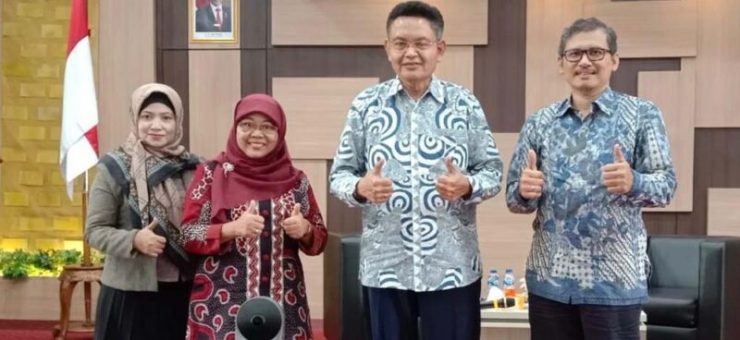UNIVERSITAS Pembangunan Nasional (UPN) Veteran Yogyakarta has organized a public lecture on coffee diplomacy recently. Indonesian coffee diplomacy has become part of contemporary diplomacy in fighting for the interests of the people.
According to the Head of the International Relations Department of UPN Faculty of Social and Political Sciences Dr. Saptopo Bambang Ilkodar, SIP, M. Si. in his speech recently said the need for a common understanding of diplomacy and coffee itself. Therefore, UPN invited diplomacy practitioners to convey their views to the academic community about coffee diplomacy.
The public lecture at UPN presented Bagas Hapsoro, Indonesian Ambassador to Sweden (2016-2020), a member of the Ministry of Foreign Affairs’ Team for Acceleration and Economic Recovery (TPPE).
In his presentation, Bagas stated that besides economic and social issues, coffee also involves ecosystem issues. For this reason, a full understanding of the value of coffee is needed. Also, awareness about the environment.
“The Ministry of Foreign Affairs and Indonesian representatives abroad actively and continuously promote coffee and the diversity of coffee varieties and flavors, care for the environment, food security and farmers,” Bagas said.
He also mentioned that the contribution of the diaspora in marketing coffee is also large. At the Central Level, the Ministry of Foreign Affairs has established INA-Access since 2021. INA-Access is a digital platform by Indonesian Micro, Small and Medium Enterprises (MSMEs).
“This is a digital platform as a trading medium. The utilization of digital platforms is an adaptive step for our MSMEs. The Ministry of Foreign Affairs’ success in promoting INA-ACCESS has also received appreciation from coffee business people and researchers. Even other government agencies also recognize the strategic value of INA-ACCESS considering that this system can integrate trade, tourism and investment. The results can be seen immediately without wasting time and distance,” said Bagas.
The INA-Access platform has generated US$16.57 million in value for the Indonesia-Latin America business forum. In addition, there were other transactions for the Indonesia-Europe business forum amounting to US$57.2 million. While for Indonesia-Eastern and Central Europe business worth US$3.1 million.
In the discussion guided by a lecturer in the Department of International Relations, Ludiro Madu, SIP, MSI, the meeting also held a question-and-answer session with the students. Generally, what was asked was cooperation between stakeholder agencies and trade barriers. Some also asked about the link between foreign policy and coffee diplomacy.
“The key is only one. Among others, through collaboration and creativity between diplomacy actors and related government agencies, business people and research institutions,” said Bagas Hapsoro in front of 120 students who participated in the offline discussion.
Bagas stated that foreign policy is one of the ways to achieve national goals. Therefore, one of its main instruments is diplomacy. The correlation between national goals, farmers’ welfare and natural resources has become an important conversation for every country.
“Coffee diplomacy is also inclusive. Cooperation continues to be carried out by related institutions, Indonesian representatives abroad, local governments, Indonesian coffee exporters, Indonesian communities abroad (Diaspora), coffee cooperatives, coffee farmers and other stakeholders. Understanding coffee diplomacy and the challenges faced (upstream and downstream) is very important,” he remarked.
The upstream side is mainly related to the productivity (volume) and quality of Indonesian coffee (which is environmentally friendly). On the downstream side, Indonesia faces foreign market policies such as the European Union that tend to be protective and discriminatory.
In conclusion, Bagas stated that strengthening and stabilizing the implementation of coffee diplomacy, from the coffee curriculum in education and training to showcasing INA-Access, gives a strong message that coffee diplomacy, in addition to maintaining cultural wealth, is also able to innovate with digitalization. [sources/photo special]
















